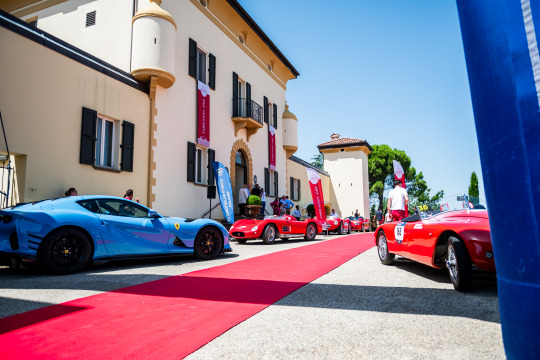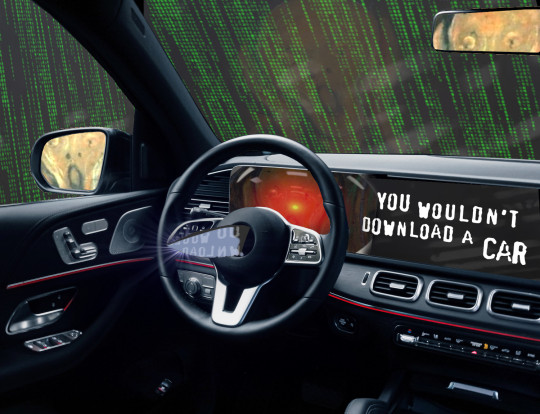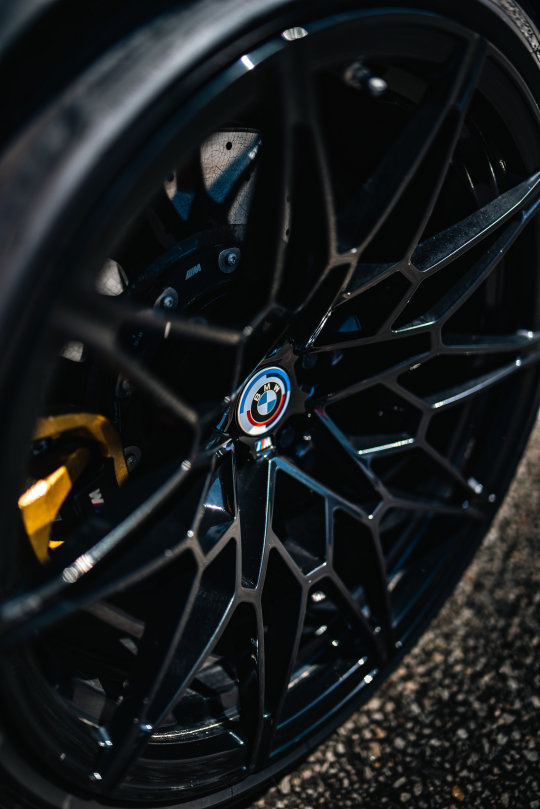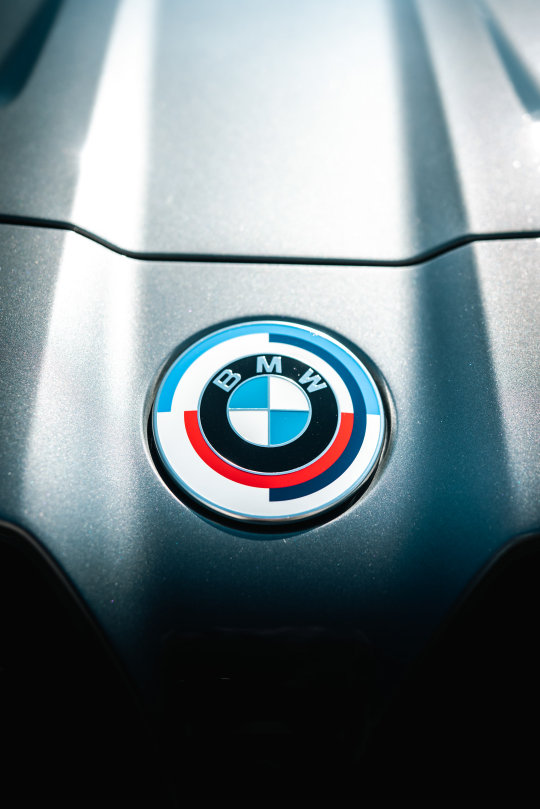#Car Competition
Text
The World’s Most Exclusive Concours Event Returns: 2024 Concorso d'Eleganza Varignana 1705 Dates and Jury Announced
Palazzo di Varignana is thrilled to announce the return of the Concorso d’Eleganza Varignana 1705, set to take place between 27-29 September 2024 – showcasing a carefully curated line-up of cars with a rich history and stunning design.
Following the success of its inaugural event in 2023, this year’s Concorso promises to be even more spectacular, attracting classic car enthusiasts and renowned…

View On WordPress
#1973 Cars#Auto Collectors#Auto Design#Auto Elegance#Auto Heritage#Auto Show#Automobile History#Automotive Craftsmanship#Automotive Elegance#Automotive Event#Automotive History#automotive icons#Automotive Prestige#Bolognese Hills#car aesthetics#Car Aficionado#Car Awards#Car Beauty#Car Classics#Car Collection#Car Collectors#Car Competition#Car Connoisseur#Car Craftsman#Car Culture#car design#Car Elegance#car enthusiasts#Car Excellence#Car Exhibition
0 notes
Text
Autoenshittification

Forget F1: the only car race that matters now is the race to turn your car into a digital extraction machine, a high-speed inkjet printer on wheels, stealing your private data as it picks your pocket. Your car’s digital infrastructure is a costly, dangerous nightmare — but for automakers in pursuit of postcapitalist utopia, it’s a dream they can’t give up on.
Your car is stuffed full of microchips, a fact the world came to appreciate after the pandemic struck and auto production ground to a halt due to chip shortages. Of course, that wasn’t the whole story: when the pandemic started, the automakers panicked and canceled their chip orders, only to immediately regret that decision and place new orders.
But it was too late: semiconductor production had taken a serious body-blow, and when Big Car placed its new chip orders, it went to the back of a long, slow-moving line. It was a catastrophic bungle: microchips are so integral to car production that a car is basically a computer network on wheels that you stick your fragile human body into and pray.
The car manufacturers got so desperate for chips that they started buying up washing machines for the microchips in them, extracting the chips and discarding the washing machines like some absurdo-dystopian cyberpunk walnut-shelling machine:
https://www.autoevolution.com/news/desperate-times-companies-buy-washing-machines-just-to-rip-out-the-chips-187033.html
These digital systems are a huge problem for the car companies. They are the underlying cause of a precipitous decline in car quality. From touch-based digital door-locks to networked sensors and cameras, every digital system in your car is a source of endless repair nightmares, costly recalls and cybersecurity vulnerabilities:
https://www.reuters.com/business/autos-transportation/quality-new-vehicles-us-declining-more-tech-use-study-shows-2023-06-22/
What’s more, drivers hate all the digital bullshit, from the janky touchscreens to the shitty, wildly insecure apps. Digital systems are drivers’ most significant point of dissatisfaction with the automakers’ products:
https://www.theverge.com/23801545/car-infotainment-customer-satisifaction-survey-jd-power
Even the automakers sorta-kinda admit that this is a problem. Back in 2020 when Massachusetts was having a Right-to-Repair ballot initiative, Big Car ran these unfuckingbelievable scare ads that basically said, “Your car spies on you so comprehensively that giving anyone else access to its systems will let murderers stalk you to your home and kill you:
https://pluralistic.net/2020/09/03/rip-david-graeber/#rolling-surveillance-platforms
But even amid all the complaining about cars getting stuck in the Internet of Shit, there’s still not much discussion of why the car-makers are making their products less attractive, less reliable, less safe, and less resilient by stuffing them full of microchips. Are car execs just the latest generation of rubes who’ve been suckered by Silicon Valley bullshit and convinced that apps are a magic path to profitability?
Nope. Car execs are sophisticated businesspeople, and they’re surfing capitalism’s latest — and last — hot trend: dismantling capitalism itself.
Now, leftists have been predicting the death of capitalism since The Communist Manifesto, but even Marx and Engels warned us not to get too frisky: capitalism, they wrote, is endlessly creative, constantly reinventing itself, re-emerging from each crisis in a new form that is perfectly adapted to the post-crisis reality:
https://www.nytimes.com/2022/10/31/books/review/a-spectre-haunting-china-mieville.html
But capitalism has finally run out of gas. In his forthcoming book, Techno Feudalism: What Killed Capitalism, Yanis Varoufakis proposes that capitalism has died — but it wasn’t replaced by socialism. Rather, capitalism has given way to feudalism:
https://www.penguin.co.uk/books/451795/technofeudalism-by-varoufakis-yanis/9781847927279
Under capitalism, capital is the prime mover. The people who own and mobilize capital — the capitalists — organize the economy and take the lion’s share of its returns. But it wasn’t always this way: for hundreds of years, European civilization was dominated by rents, not markets.
A “rent” is income that you get from owning something that other people need to produce value. Think of renting out a house you own: not only do you get paid when someone pays you to live there, you also get the benefit of rising property values, which are the result of the work that all the other homeowners, business owners, and residents do to make the neighborhood more valuable.
The first capitalists hated rent. They wanted to replace the “passive income” that landowners got from taxing their serfs’ harvest with active income from enclosing those lands and grazing sheep in order to get wool to feed to the new textile mills. They wanted active income — and lots of it.
Capitalist philosophers railed against rent. The “free market” of Adam Smith wasn’t a market that was free from regulation — it was a market free from rents. The reason Smith railed against monopolists is because he (correctly) understood that once a monopoly emerged, it would become a chokepoint through which a rentier could cream off the profits he considered the capitalist’s due:
https://locusmag.com/2021/03/cory-doctorow-free-markets/
Today, we live in a rentier’s paradise. People don’t aspire to create value — they aspire to capture it. In Survival of the Richest, Doug Rushkoff calls this “going meta”: don’t provide a service, just figure out a way to interpose yourself between the provider and the customer:
https://pluralistic.net/2022/09/13/collapse-porn/#collapse-porn
Don’t drive a cab, create Uber and extract value from every driver and rider. Better still: don’t found Uber, invest in Uber options and extract value from the people who invest in Uber. Even better, invest in derivatives of Uber options and extract value from people extracting value from people investing in Uber, who extract value from drivers and riders. Go meta.
This is your brain on the four-hour-work-week, passive income mind-virus. In Techno Feudalism, Varoufakis deftly describes how the new “Cloud Capital” has created a new generation of rentiers, and how they have become the richest, most powerful people in human history.
Shopping at Amazon is like visiting a bustling city center full of stores — but each of those stores’ owners has to pay the majority of every sale to a feudal landlord, Emperor Jeff Bezos, who also decides which goods they can sell and where they must appear on the shelves. Amazon is full of capitalists, but it is not a capitalist enterprise. It’s a feudal one:
https://pluralistic.net/2022/11/28/enshittification/#relentless-payola
This is the reason that automakers are willing to enshittify their products so comprehensively: they were one of the first industries to decouple rents from profits. Recall that the reason that Big Car needed billions in bailouts in 2008 is that they’d reinvented themselves as loan-sharks who incidentally made cars, lending money to car-buyers and then “securitizing” the loans so they could be traded in the capital markets.
Even though this strategy brought the car companies to the brink of ruin, it paid off in the long run. The car makers got billions in public money, paid their execs massive bonuses, gave billions to shareholders in buybacks and dividends, smashed their unions, fucked their pensioned workers, and shipped jobs anywhere they could pollute and murder their workforce with impunity.
Car companies are on the forefront of postcapitalism, and they understand that digital is the key to rent-extraction. Remember when BMW announced that it was going to rent you the seatwarmer in your own fucking car?
https://pluralistic.net/2020/07/02/big-river/#beemers
Not to be outdone, Mercedes announced that they were going to rent you your car’s accelerator pedal, charging an extra $1200/year to unlock a fully functional acceleration curve:
https://www.theverge.com/2022/11/23/23474969/mercedes-car-subscription-faster-acceleration-feature-price
This is the urinary tract infection business model: without digitization, all your car’s value flowed in a healthy stream. But once the car-makers add semiconductors, each one of those features comes out in a painful, burning dribble, with every button on that fakakta touchscreen wired directly into your credit-card.
But it’s just for starters. Computers are malleable. The only computer we know how to make is the Turing Complete Von Neumann Machine, which can run every program we know how to write. Once they add networked computers to your car, the Car Lords can endlessly twiddle the knobs on the back end, finding new ways to extract value from you:
https://doctorow.medium.com/twiddler-1b5c9690cce6
That means that your car can track your every movement, and sell your location data to anyone and everyone, from marketers to bounty-hunters looking to collect fees for tracking down people who travel out of state for abortions to cops to foreign spies:
https://www.vice.com/en/article/n7enex/tool-shows-if-car-selling-data-privacy4cars-vehicle-privacy-report
Digitization supercharges financialization. It lets car-makers offer subprime auto-loans to desperate, poor people and then killswitch their cars if they miss a payment:
https://www.youtube.com/watch?v=4U2eDJnwz_s
Subprime lending for cars would be a terrible business without computers, but digitization makes it a great source of feudal rents. Car dealers can originate loans to people with teaser rates that quickly blow up into payments the dealer knows their customer can’t afford. Then they repo the car and sell it to another desperate person, and another, and another:
https://pluralistic.net/2022/07/27/boricua/#looking-for-the-joke-with-a-microscope
Digitization also opens up more exotic options. Some subprime cars have secondary control systems wired into their entertainment system: miss a payment and your car radio flips to full volume and bellows an unstoppable, unmutable stream of threats. Tesla does one better: your car will lock and immobilize itself, then blare its horn and back out of its parking spot when the repo man arrives:
https://tiremeetsroad.com/2021/03/18/tesla-allegedly-remotely-unlocks-model-3-owners-car-uses-smart-summon-to-help-repo-agent/
Digital feudalism hasn’t stopped innovating — it’s just stopped innovating good things. The digital device is an endless source of sadistic novelties, like the cellphones that disable your most-used app the first day you’re late on a payment, then work their way down the other apps you rely on for every day you’re late:
https://restofworld.org/2021/loans-that-hijack-your-phone-are-coming-to-india/
Usurers have always relied on this kind of imaginative intimidation. The loan-shark’s arm-breaker knows you’re never going to get off the hook; his goal is in intimidating you into paying his boss first, liquidating your house and your kid’s college fund and your wedding ring before you default and he throws you off a building.
Thanks to the malleability of computerized systems, digital arm-breakers have an endless array of options they can deploy to motivate you into paying them first, no matter what it costs you:
https://pluralistic.net/2021/04/02/innovation-unlocks-markets/#digital-arm-breakers
Car-makers are trailblazers in imaginative rent-extraction. Take VIN-locking: this is the practice of adding cheap microchips to engine components that communicate with the car’s overall network. After a new part is installed in your car, your car’s computer does a complex cryptographic handshake with the part that requires an unlock code provided by an authorized technician. If the code isn’t entered, the car refuses to use that part.
VIN-locking has exploded in popularity. It’s in your iPhone, preventing you from using refurb or third-party replacement parts:
https://doctorow.medium.com/apples-cement-overshoes-329856288d13
It’s in fuckin’ ventilators, which was a nightmare during lockdown as hospital techs nursed their precious ventilators along by swapping parts from dead systems into serviceable ones:
https://www.vice.com/en/article/3azv9b/why-repair-techs-are-hacking-ventilators-with-diy-dongles-from-poland
And of course, it’s in tractors, along with other forms of remote killswitch. Remember that feelgood story about John Deere bricking the looted Ukrainian tractors whose snitch-chips showed they’d been relocated to Russia?
https://doctorow.medium.com/about-those-kill-switched-ukrainian-tractors-bc93f471b9c8
That wasn’t a happy story — it was a cautionary tale. After all, John Deere now controls the majority of the world’s agricultural future, and they’ve boobytrapped those ubiquitous tractors with killswitches that can be activated by anyone who hacks, takes over, or suborns Deere or its dealerships.
Control over repair isn’t limited to gouging customers on parts and service. When a company gets to decide whether your device can be fixed, it can fuck you over in all kinds of ways. Back in 2019, Tim Apple told his shareholders to expect lower revenues because people were opting to fix their phones rather than replace them:
https://www.apple.com/newsroom/2019/01/letter-from-tim-cook-to-apple-investors/
By usurping your right to decide who fixes your phone, Apple gets to decide whether you can fix it, or whether you must replace it. Problem solved — and not just for Apple, but for car makers, tractor makers, ventilator makers and more. Apple leads on this, even ahead of Big Car, pioneering a “recycling” program that sees trade-in phones shredded so they can’t possibly be diverted from an e-waste dump and mined for parts:
https://www.vice.com/en/article/yp73jw/apple-recycling-iphones-macbooks
John Deere isn’t sleeping on this. They’ve come up with a valuable treasure they extract when they win the Right-to-Repair: Deere singles out farmers who complain about its policies and refuses to repair their tractors, stranding them with six-figure, two-ton paperweight:
https://pluralistic.net/2022/05/31/dealers-choice/#be-a-shame-if-something-were-to-happen-to-it
The repair wars are just a skirmish in a vast, invisible fight that’s been waged for decades: the War On General-Purpose Computing, where tech companies use the law to make it illegal for you to reconfigure your devices so they serve you, rather than their shareholders:
https://memex.craphound.com/2012/01/10/lockdown-the-coming-war-on-general-purpose-computing/
The force behind this army is vast and grows larger every day. General purpose computers are antithetical to technofeudalism — all the rents extracted by technofeudalists would go away if others (tinkereres, co-ops, even capitalists!) were allowed to reconfigure our devices so they serve us.
You’ve probably noticed the skirmishes with inkjet printer makers, who can only force you to buy their ink at 20,000% markups if they can stop you from deciding how your printer is configured:
https://pluralistic.net/2022/08/07/inky-wretches/#epson-salty
But we’re also fighting against insulin pump makers, who want to turn people with diabetes into walking inkjet printers:
https://pluralistic.net/2022/06/10/loopers/#hp-ification
And companies that make powered wheelchairs:
https://pluralistic.net/2022/06/08/chair-ish/#r2r
These companies start with people who have the least agency and social power and wreck their lives, then work their way up the privilege gradient, coming for everyone else. It’s called the “shitty technology adoption curve”:
https://pluralistic.net/2022/08/21/great-taylors-ghost/#solidarity-or-bust
Technofeudalism is the public-private-partnership from hell, emerging from a combination of state and private action. On the one hand, bailing out bankers and big business (rather than workers) after the 2008 crash and the covid lockdown decoupled income from profits. Companies spent billions more than they earned were still wildly profitable, thanks to those public funds.
But there’s also a policy dimension here. Some of those rentiers’ billions were mobilized to both deconstruct antitrust law (allowing bigger and bigger companies and cartels) and to expand “IP” law, turning “IP” into a toolsuite for controlling the conduct of a firm’s competitors, critics and customers:
https://locusmag.com/2020/09/cory-doctorow-ip/
IP is key to understanding the rise of technofeudalism. The same malleability that allows companies to “twiddle” the knobs on their services and keep us on the hook as they reel us in would hypothetically allow us to countertwiddle, seizing the means of computation:
https://pluralistic.net/2023/04/12/algorithmic-wage-discrimination/#fishers-of-men
The thing that stands between you and an alternative app store, an interoperable social media network that you can escape to while continuing to message the friends you left behind, or a car that anyone can fix or unlock features for is IP, not technology. Under capitalism, that technology would already exist, because capitalists have no loyalty to one another and view each other’s margins as their own opportunities.
But under technofeudalism, control comes from rents (owning things), not profits (selling things). The capitalist who wants to participate in your iPhone’s “ecosystem” has to make apps and submit them to Apple, along with 30% of their lifetime revenues — they don’t get to sell you jailbreaking kit that lets you choose their app store.
Rent-seeking technology has a holy grail: control over “ring zero” — the ability to compel you to configure your computer to a feudalist’s specifications, and to verify that you haven’t altered your computer after it came into your possession:
https://pluralistic.net/2022/01/30/ring-minus-one/#drm-political-economy
For more than two decades, various would-be feudal lords and their court sorcerers have been pitching ways of doing this, of varying degrees of outlandishness.
At core, here’s what they envision: inside your computer, they will nest another computer, one that is designed to run a very simple set of programs, none of which can be altered once it leaves the factory. This computer — either a whole separate chip called a “Trusted Platform Module” or a region of your main processor called a secure enclave — can tally observations about your computer: which operating system, modules and programs it’s running.
Then it can cryptographically “sign” these observations, proving that they were made by a secure chip and not by something you could have modified. Then you can send this signed “attestation” to someone else, who can use it to determine how your computer is configured and thus whether to trust it. This is called “remote attestation.”
There are some cool things you can do with remote attestation: for example, two strangers playing a networked video game together can use attestations to make sure neither is running any cheat modules. Or you could require your cloud computing provider to use attestations that they aren’t stealing your data from the server you’re renting. Or if you suspect that your computer has been infected with malware, you can connect to someone else and send them an attestation that they can use to figure out whether you should trust it.
Today, there’s a cool remote attestation technology called “PrivacyPass” that replaces CAPTCHAs by having you prove to your own device that you are a human. When a server wants to make sure you’re a person, it sends a random number to your device, which signs that number along with its promise that it is acting on behalf of a human being, and sends it back. CAPTCHAs are all kinds of bad — bad for accessibility and privacy — and this is really great.
But the billions that have been thrown at remote attestation over the decades is only incidentally about solving CAPTCHAs or verifying your cloud server. The holy grail here is being able to make sure that you’re not running an ad-blocker. It’s being able to remotely verify that you haven’t disabled the bossware your employer requires. It’s the power to block someone from opening an Office365 doc with LibreOffice. It’s your boss’s ability to ensure that you haven’t modified your messaging client to disable disappearing messages before he sends you an auto-destructing memo ordering you to break the law.
And there’s a new remote attestation technology making the rounds: Google’s Web Environment Integrity, which will leverage Google’s dominance over browsers to allow websites to block users who run ad-blockers:
https://github.com/RupertBenWiser/Web-Environment-Integrity
There’s plenty else WEI can do (it would make detecting ad-fraud much easier), but for every legitimate use, there are a hundred ways this could be abused. It’s a technology purpose-built to allow rent extraction by stripping us of our right to technological self-determination.
Releasing a technology like this into a world where companies are willing to make their products less reliable, less attractive, less safe and less resilient in pursuit of rents is incredibly reckless and shortsighted. You want unauthorized bread? This is how you get Unauthorized Bread:
https://arstechnica.com/gaming/2020/01/unauthorized-bread-a-near-future-tale-of-refugees-and-sinister-iot-appliances/amp/

If you'd like an essay-formatted version of this thread to read or share, here's a link to it on pluralistic.net, my surveillance-free, ad-free, tracker-free blog:
https://pluralistic.net/2023/07/24/rent-to-pwn/#kitt-is-a-demon

[Image ID: The interior of a luxury car. There is a dagger protruding from the steering wheel. The entertainment console has been replaced by the text 'You wouldn't download a car,' in MPAA scare-ad font. Outside of the windscreen looms the Matrix waterfall effect. Visible in the rear- and side-view mirror is the driver: the figure from Munch's 'Scream.' The screen behind the steering-wheel has been replaced by the menacing red eye of HAL9000 from Stanley Kubrick's '2001: A Space Odyssey.']

Image:
Cryteria (modified)
https://commons.wikimedia.org/wiki/File:HAL9000.svg
CC BY 3.0
https://creativecommons.org/licenses/by/3.0/deed.en
#pluralistic#shitty technology adoption curve#unauthorized bread#automotive#arm-breakers#cars#big car#right to repair#rent-seeking#digital feudalism#neofeudalism#drm#wei#remote attestation#private access tokens#yannis varoufakis#web environment integrity#paternalism#war on general purpose computing#competitive compatibility#google#enshittification#interoperability#adversarial interoperability#comcom#the internet con#postcapitalism#ring zero#care#med-tech
4K notes
·
View notes
Text
every few weeks, max verstappen comes forward to reestablish his leadership of the lecfosi nation
#when youre in a 'who is the biggest lecfoso' competition but your opponent is 3x wdc max verstappen#this man is 2 race weekends away from giving his own car to charles so he wont get slandered by the media anymore#max verstappen#charles leclerc#lestappen#f1#formula one#formula 1#txt#his bias for charles is so funny to see ngl
638 notes
·
View notes
Text

Daniel was the fastest among the long runners on mediums 👀
#testing times aside#and our delusional conclusions from those#today was a good day#his long stints looked extremely managed and competitive#he is conmfortable in the car which should be a bare minimum but#really feels like the biggest victory after the McLaren years#daniel ricciardo
76 notes
·
View notes
Text
i have recently been brainrotting about a batkids racing au. all of them have either shitty home-lives or have had their home-lives taken away and all turn to the concepts of semi-legal street racing as an outlet. in the process, they meet people perhaps in the same boat-- perhaps a family.
Dick
around 21, has been racing since he was 15
likes riding smaller cars. the tighter fit the better. if it's not sleek and swervy he doesn't want it.
had caring parents who he travelled the world with by car, but they died in a car crash when he was 11. due to lack of living relatives, he was in the foster system for 4 years before Barry (Allen) took him in. he never saw Barry as a father, however, and was never officially adopted. basically Wally's roommate and Bart's older brother figure in a way.
Wally introduced him to the street racing world, and despite being very very reluctant at first (car crash trauma), Wally showed him all the good parts of it and he's loved it ever since
experienced racer, everyone there loves him and he's well known as one of the top racers
Jason
20, been racing since 17
he generally prefers driving motorcycles but make no mistake he will shred you no matter what racing vehicle you give him (he's competitive.) in terms of street/car racing he will go for anything with powerful acceleration.
his dad was a mechanic and Jason would sometimes help him out with car repairs when he was younger, although his dad would sometimes drop a bit too much workload on him and not really care for his well-being
mom was a recovering drug addict, cared for Jay but couldn't be around much due to both rehab and hospital visits
his dad was later arrested for underground drug dealing, dying in prison and his mom died of overdose. at 13, he was in the foster system for more or less a year before he ran, living on the streets for 3 more years, doing odd jobs.
at 16, he met Roy, who later (at 17) introduced him to street racing. Jason always had a knack for cars and with his natural talent he won quite a few of his first races, earning money from the betting pools and has been basically splitting rent and crashing with Roy ever since.
absolute MENACE of a racer. showed up at some point and basically showed most people up. can and will judge your car model. might steal your tires for the funsies.
Tim
18, new to the racing scene (been racing since 17) but knows A LOT about it through his own love for motorsports (he definitely has car posters in his room)
will drive any car. literally. he will just love it if you give him a car. in fact, give him a broken one so that he can make it BETTER than everyone else's.
lovely and wealthy parents, but they aren't around much. they honestly try their best, but when you're an only child in a big house it can get boring and lonely. he loves his parents and his mom was the one who first showed him motorsports when she was working on a business deal with a motorsport company (Tim got his first free car poster that day)
definitely takes pictures of cool cars he sees
as soon as he found out about the street racing ring in Gotham he immediately snuck in (age 15)
he would come practically every night he could and made friends with the younger racers (bart, cassie, kon) (they 100% would go to him for geeky car tech tips)
one time bart was sick for a race and cassie and kon asked tim to step in for him on the team, tim did-- he performed so naturally well that he caught the attention of other racers, decided to stay with the YJ team permanently
commonly referred to as a rising star, a prodigy in the racing scene
Damian
15, literally raised into motorsports. god knows when he drove his first car. he started officially racing in the street ring only recently, but already has a reputation as one of the best
preference for aerodynamic cars. the sleeker the better for him.
commonly underestimated by new racers
bruce is still his bio dad, he literally funds most the betting pools and co-runs the street racing ring under the guise of a totally normal auto repair store
hella competitive, will do everything to outshine you especially if you look down on him
LOVES painting on his car. like everyone customises theirs to a certain point but Damian will sit there for hours just painting on it.
does NOT care for the betting pools, if he wins he will just put all the money right back in. he just wants to win and beat you LMAO
#tim drake#batfam#batman#dc comics#jason todd#damian wayne#dick grayson#rays racing bats au#hehe#they are SO COMPETITIVE in this one its insane#dick when he sees jay and tim mop the floor with everyone js like he did:#im keeping 'em.#jay seeing tim fix a car:#my apprentice now
85 notes
·
View notes
Note
Ah but consider Marc as a wag in the WeC paddock where most of them are older than him so ticking his age kink, where people like Jenson are there so ticking his champion/competency kink and they tuck him under their arm so very easily. Someone might have allowed him to test a car or do a lap and now Marc's own competency milkshake brings all the drivers to the yard. Everyone is super fond. WEC weekends are basically Marc in a candy shop, a lovely little treat. Valentino drowns him in his number/clothing like a dog staking his claim.

the merch thing is so funny because like yeah it’s this nasty illicit sex claim slash possessive romantic gesture that they both enjoy as like. a sublimation of their egos into one another and a way to merge their legacies and souls. but in another very real sense they both think it is the funniest bit in the worlddddddd. stupid in joke with the public that is also a humblebrag. it would be like that time marc put on the vale hat for the italian reporters but this time it’s not tinged with the bitter sadness of the joke being GET IT BECAUSE HE HATES ME. instead it’s the smug joy of GET IT HE LOVES MEEE :D so he can walk around decked out booty shorts with THE DOCTOR on the ass and then joyfully post it eight times to instagram while everyone walking around the paddock feeds him flattering questions about his own sport AND he gets to brag about vale. maybe and genuinely the ideal scenario for marc as wag. i bet he wakes up from a dream exactly like that now and feels it in his TEETH he wants it so bad
#and marc DOES have interest in car racing he watches f1 a lot. in terms of actually doingggg it. naw not crazy enough#maybe for a fun leedle sponsored thang.#i mean vale only took it up because his body wasn’t letting him ride a bike the way he wanted and he’s addicted to paddock life/competition#motogp#callie speaks#asks#rosquez
55 notes
·
View notes
Text





BMW M3 Competition
Images by Pierre Coroller || IG
120 notes
·
View notes
Text
#monster jam#grave digger#monster truck#driving#wheelie#tricks#stunts#Tyler Menninga#YouTube#competition#clean sweep#cars#trucks
129 notes
·
View notes
Text

289 notes
·
View notes
Text
Charles misses Max so much that he can't help but talk about him every chance he gets
97 notes
·
View notes
Text



#singer#all-terrain#competition#study#car#cars#fast car#fast cars#supercar#supercars#classic#offroad#offroader#porsche#porsche 911
79 notes
·
View notes
Text
I mean wbk? Why would a no.1 driver want to be a 2nd driver, that too for red bull. Also Charles lives and breathes Ferrari, so I don't think anyone's really surprised with his contract renewal.

#for me they are better as rivals in different teams than rivals as teammates#Now Ferrari you just need to do your part and develop a competitive car#I just want to see them battle ffs is it too much to ask#charles leclerc#max verstappen#lestappen#silly season#formula 1#f1#rbr
122 notes
·
View notes
Text

If you think about it, this is actually Seb’s fault
#what did you do seb#you can’t give Nando a competitive car and expect him to be normal after that#if you had told me this was going to be a conversation we were going to have I would have slapped you#fernando alonso#sebastian vettel#taylor swift#f1
208 notes
·
View notes
Text
so mick was told in a hotel lobby he was dropped from haas, steiner berated him in public race after race when it was bc of him and his strategists mick wasn’t able to score points, didn’t let him do donuts bc they was more focused on making sure they didn’t run out of spare parts bc of hulkenburg being in the car for post season testing, baring in mind all teams would’ve had the same issue with it being end of season and all and then laurent mekeis from ferrari was the one to tell mick before steiner that he was dropped from haas??
wallah and i can’t stress this enough i hope haas never score a point in their lives and forever remain a backmarker bc if this isn’t a clear indication that all steiner cares about is sponsorship and looking good for netflix and is in way over his head and out of depth by being a team principle then idk what is
steiner and haas only cared about mick for his sponsorships and the pr that came with being michael’s son and u can tell bc of the way they dragged mick through the mud this year
n the funny thing is that haas only had so many fans because of mick and sponsorships are already leaving the team n i’m sure more will follow suit
#steiner doesn’t know shit from shit#he is actually disgusting#and he never cared about mick#despite going on and on about how important the schumacher name is#but yet they still do mick like this#yes he wasn’t the best#but he wasn’t the worst either#n considering this is his first season in a competitive car fighting others he did very good#miss girl was fighting a red bull n a merc in a fucking dinger#and it was given kevin was going to do better bc guess what??#kevin is far more experienced than mick is#bc guess what??? kevin understands haas better than mick bc he’s been there pretty much since the start#mick schumacher
406 notes
·
View notes
Text

“He went into Redbull and he won his first race” TEARS MAN BRF YOU COULD HAVE SAID ANYTHING G ELSE😭😭😭😭😭😭😭😭😭😭😭😭😭😭
Max constantly drag that TR car into the points and into q3 along WITH a p4 finish. Won his first GP at 18!!! Annoyed the fuck outta the older drivers by pulling speed from nowhere😭😭the logic that Max cannot win in a uncompetitive car is hilarious when the proof is literally right here😭
#ofc he couldn’t win a championship in a less competitive car#but he literally almost beat Bottas who was driving that Merc car in 2020#tears some people truly are delusional lmao#max verstappen#rambles#f1#formula 1#red bull racing
105 notes
·
View notes